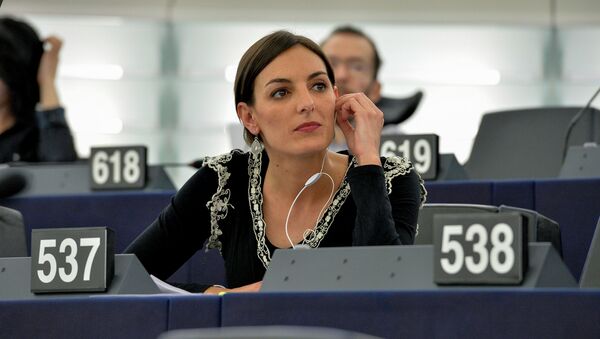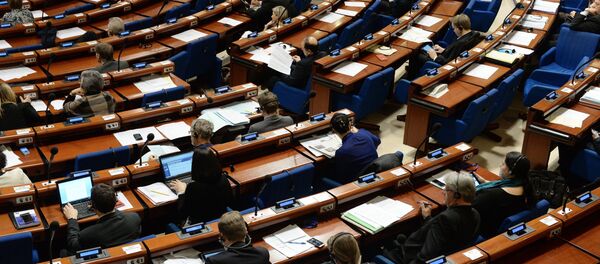“We should wait when the situation in such countries as Spain, Ireland, Italy and Portugal will change, where new political movements are actively emerging,” Sanchez said.
According to her, this could help to sway the balance of opinion in Europe and consequently the approach of Brussels to Russia.
Sanchez, who was raised in Murcia, one of the main agricultural regions of Spain that suffered severely from the Brussels sanctions, noted that a lot of small companies exporting goods to Russia had to leave trucks full of vegetables and fruits rotting amid the restrictions.
"Neither Spain nor the EU benefit from it," she said.
Sanchez added that sanctioning is a punitive way to maintain international relations, and that political engagement is best served by dialogue.
The European Union, alongside the United States and a number of other Western nations, has accused Moscow of interfering with Ukraine's internal affairs, escalating the violence in the country's southeast. Russian authorities have denied involvement in the Ukrainian conflict.
Following the accusations, the West imposed several rounds of sanctions on Russia, targeting several sectors of the Russian economy, including banking, energy and defense, as well as certain individuals. In response, Moscow issued a year-long embargo on food imports from countries that imposed sanctions.



